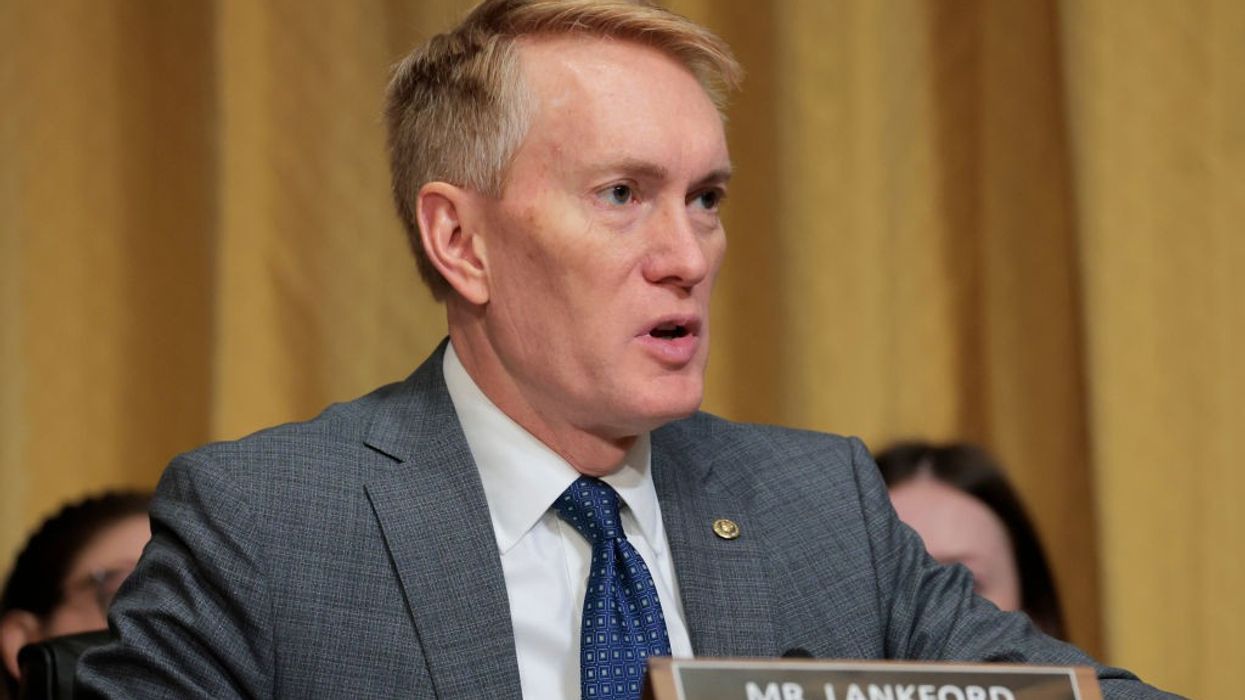The Energy Permitting Reform Act combines significant reforms in electricity transmission—potentially unlocking big gains in renewable energy—with coal, oil, and gas boons that would be big wins for the fossil fuel lobby.
The permitting laws surrounding oil, gas, and coal leases and permits may be an arcane abstraction to most analysts, but they are the keys to the energy kingdom to fossil fuel industries intent on expanding production for decades to come.
Now energy analysts are in the hot seat as they are asked to validate whether this energy bargain is a good deal for the planet.
Déjà Vu
The lessons from a similar energy deal in 2015 should give anyone pause before joining the Manchin parade. The 2015 budget deal paired renewable energy tax credits with a provision to lift the decades-old ban on exporting U.S. crude oil. Energy analysts rushed to validate the bargain. Those clean energy provisions would “dwarf the impact on carbon emissions of allowing oil exports,” wrote Michael Levi in an analysis widely quoted at the time.
To quell fears about the oil provisions, Rep. Nancy Pelosi (D-Calif.) sent a letter, writing: “While lifting the oil export ban remains atrocious policy, the wind and solar tax credits in the omnibus will eliminate around 10 times more carbon pollution than the exports of oil will add.”
Her appeal worked. The bill passed. Contrary to the assurances of energy experts, the oil export floodgates opened. Crude exports surged from zero to 4 million barrels a day today. This growth in exports was 20 times higher than the worst-case scenario forecasted in 2015 by Levi, the U.S. Energy Information Administration (EIA), and others.
As I said at the start, the oil lobby is smart. They knew that fracking technology was going to transform oil and gas production, but they needed new markets.
The Foxes Are Snickering at the Hen House Door
The 2015 experience should caution everyone to step back and look more closely at what the fossil fuel lobby helped Manchin write behind closed doors. The permitting laws surrounding oil, gas, and coal leases and permits may be an arcane abstraction to most analysts, but they are the keys to the energy kingdom to fossil fuel industries intent on expanding production for decades to come.
There is ample cause for concern. Sen. John Barrasso (R-Wyo.), Manchin’s co-author, gloats that the bill “guarantee[s] future access to oil and natural gas resources on federal lands and waters” in ways that not even former U.S. President Donald Trump could do under current law. Further, he says that “it will permanently end President Joe Biden’s reckless ban on new liquefied natural gas (LNG) exports.”
The Wall Street Journal editorial board agrees, urging Trump to “steal a march on Kamala Harris by endorsing” Manchin’s energy bill.
The Danger of Locking in Fossil Fuel Infrastructure
Changing the law in order to expedite new fossil fuel infrastructure can directly threaten global climate goals. The IPCC, the world’s leading authority on climate science, warned in their 2022 report that “cancellation of plans for new fossil fuel infrastructures” is needed to avoid “significant carbon lock-ins, stranded assets, and other additional costs” and potentially putting the Paris climate goals “out of reach” (p. 267).
Similarly, the International Energy Agency, the world’s leading tracker of global energy trends, concluded in their 2023 World Energy Outlook that “investment in oil and gas today is almost double the level required in the [net zero emissions scenario] in 2030, signaling a clear risk of protracted fossil fuel use that would put the 1.5°C goal out of reach” (p. 19).
Supersized Demands from Fossil Fuel Allies
Every energy bill ever passed by Congress has some degree of “hold your nose” compromise. Even the 2022 Inflation Reduction Act, the most important piece of climate legislation ever enacted, gave some ground, tying oil and gas leases together with offshore wind leases in a Beltway version of a shotgun wedding.
But the fossil fuel lobby has now supersized their hostage demands with the single-minded goal of guarding against an incoming Harris administration by mandating a steady stream of fossil fuel leases and permits.
In a separate analysis (update available here), I calculated the energy and greenhouse gas impacts of the LNG portion of the Manchin bill. The five LNG liquefaction plants expedited by the bill are designed to produce up to 77 trillion cubic feet of natural gas through 2050 (10.6 Bcf/day).
This long-lived fossil fuel infrastructure is far more likely to dampen investment in renewable energy, electrification, and energy conservation than displace other fossil fuels.
Liquefying gas, which must be cooled to 260°F below zero, requires significant energy. According to EIA, 14% of the gas used to produce LNG is consumed during liquefaction. That means that up to 13 trillion additional cubic feet of natural gas through 2050 (1.7 Bcf/day) will be consumed to produce the LNG from these five projects.
The total volume of natural gas consumed and processed by these LNG projects (94 trillion cubic feet through 2050) is enough to meet almost all of the gas needs for homes across America (99 trillion cubic feet) over the same timeframe. It is also equivalent to 62% of the total amount of gas (152 trillion cubic feet) EIA forecasts will be used by the electric power sector from 2030-2050.
The lifecycle greenhouse gas emissions of all LNG produced by these five plants would be 616 million metric tons annually (13 gigatons through 2050), equivalent to 165 coal-fired power plants.
Using government estimates of the economic damage caused by greenhouse gas emissions, we can put a dollar estimate to these emissions: $1.7 trillion (cumulatively through 2050).
Keep in mind this only accounts for the LNG section of the Manchin bill and does not include the impacts of the bill’s oil, coal, and gas leasing mandates.
A Misused Measuring Stick
Assumptions used in greenhouse gas analysis can have profound effects on policymaking. It’s impossible to achieve numerical science targets without good measurements.
One set of assumptions in particular can make or break assessments of fossil fuel infrastructure. Energy substitution analysis looks at what happens to energy markets when new energy sources are added or removed, which in turn shapes how greenhouse gas emissions are calculated.
This is where some energy analyses get sloppy, relying on outdated, simplified assumptions to minimize the climate impact of fossil fuel infrastructure. The federal government is particularly bad at this. It can be awkward to approve projects after finding they superchage global warming. My analysis of seven major environmental impact statements across five federal agencies found that the agencies erased 98% of the greenhouse gas emissions from oil and gas projects, on average, obscuring $1 trillion in climate damages.
The pertinent question when assessing the substitution effects of energy infrastructure is whether the energy helps or hurts in achieving deep decarbonization pathways. This question is kept firmly in sight when analysts assess clean energy supply policies but can fade into the background when people argue that fossil fuel supplies don’t matter because the emissions aren’t any worse than current pollution sources.
Someone can claim a punch to your right arm won’t hurt more than a punch to your left arm, but the reality is that the punch still hurts. You can claim that LNG doesn’t increase emissions because it’s substituting for other fossil fuels, but the reality is that the planet is still getting cooked.
The theoretical argument that U.S. LNG coming online in five years will replace coal in China is especially unrealistic in light of global and regional trends toward renewable electricity. According to the Institute for Energy Economics and Financial Analysis (IEEFA): “Evidence from China, the world’s largest coal consumer, shows that LNG is unlikely to materially displace coal-fired power generation.”
Keep in mind that these LNG plants won’t come online until about 2030, and the billions of dollars invested are dependent on decades of LNG production thereafter. This long-lived fossil fuel infrastructure is far more likely to dampen investment in renewable energy, electrification, and energy conservation than displace other fossil fuels.
The oil and gas industry has a particularly long and successful history of creating and defending markets to absorb supply. Consider, for example, the oil lobby’s successful efforts to keep fuel economy standards, and how they have pushed fossil fuel-based plastics across the world. Now that America is shifting off gas, they have turned their sights to shifting those emissions overseas.
Common Ground
There are many factors that go into assessing the impacts of Manchin’s energy bill, with valid grounds for different approaches and results. I suggest the following principles as potential common ground and a worthwhile test for any analysis:
- Be transparent — Include the full (i.e., gross) lifecycle emissions from all fossil fuels that are brought to market by the bill as a reference point so users can understand the impact of substitution assumptions.
- Be consistent — Assumptions used to assess the emissions profile of policies that bring fossil fuels to markets should be analogous with the assumptions used to assess the benefits of clean energy policies. If permitting policy to expedite clean energy infrastructure can lead to big emission reductions, then it also stands to reason that permitting policy to expedite fossil fuel infrastructure can also lead to big emission increases.
- Use the precautionary principle — Assume that fossil fuel lobbyists knew what they were doing when they wrote the detailed fossil fuel provisions of the bill. Talk to the lawyers who take these companies to court and understand the stakes when language mandates the use of particular studies and processes. At a minimum, provide a worst-case scenario that truly reflects the breadth of what the authors say their bill will do.
- Get methane right — Too many emissions models rely on methane data that is known to be wrong. Numerous studies (for example, here, here and here), based on more than 1 million measurements, show real-world methane emission leaks from U.S. natural gas production are 3-4 times higher than the industry-reported data used by the government and modelers. Peer-reviewed studies show that, with proper methane accounting, natural gas has a climate impact as bad as coal.



